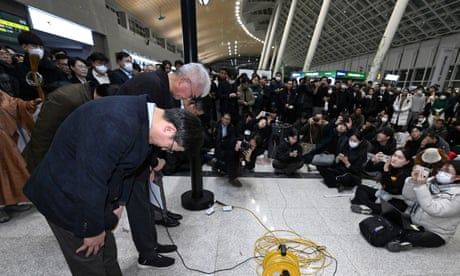
There is a clear benefit in taking responsibility for mistakes. So why do so many leaders fob off the public with obfuscation?
The Korean chief executive of Jeju Air, Kim E-bae, could not have been more direct. After the crash of one of the airline’s planes he went straight to the microphone, bowed deeply and said, “Regardless of the cause, as CEO, I feel profound responsibility for this incident.” He offered his “deepest condolences and apologies to the families of the passengers who lost their lives”.
The statement seemed unusual. Last week, another plane crash, this time in Kazakhstan, was acknowledged by a man similarly “responsible”, Russia’s Vladimir Putin. In a contorted message to his fellow leader in Azerbaijan, he said how sorry he was about “a tragic incident that occurred in Russian airspace”. He expressed condolences but no responsibility for what has been widely accepted as a Russian missile attack, however unintended. Putin appeared not sorry, but devious.
Simon Jenkins is a Guardian columnist
Continue reading...